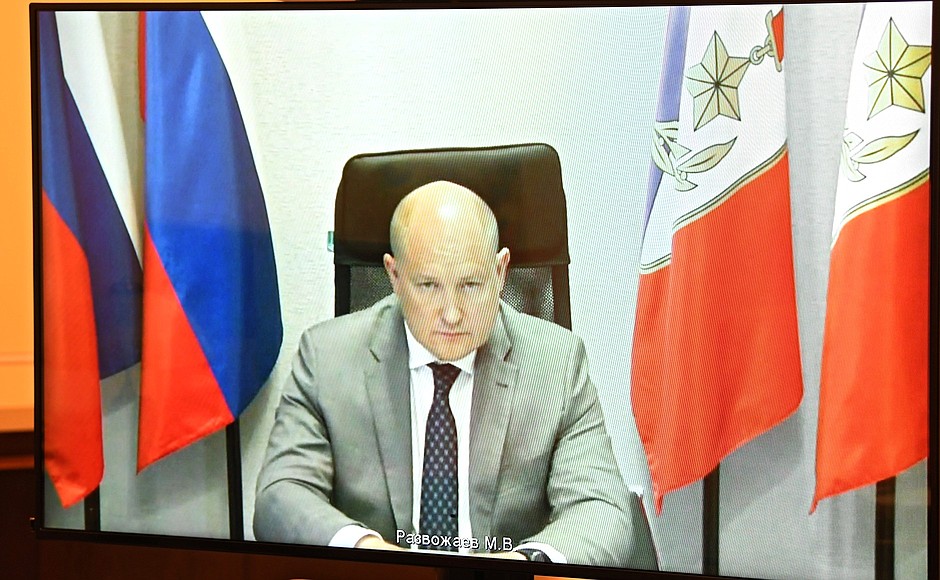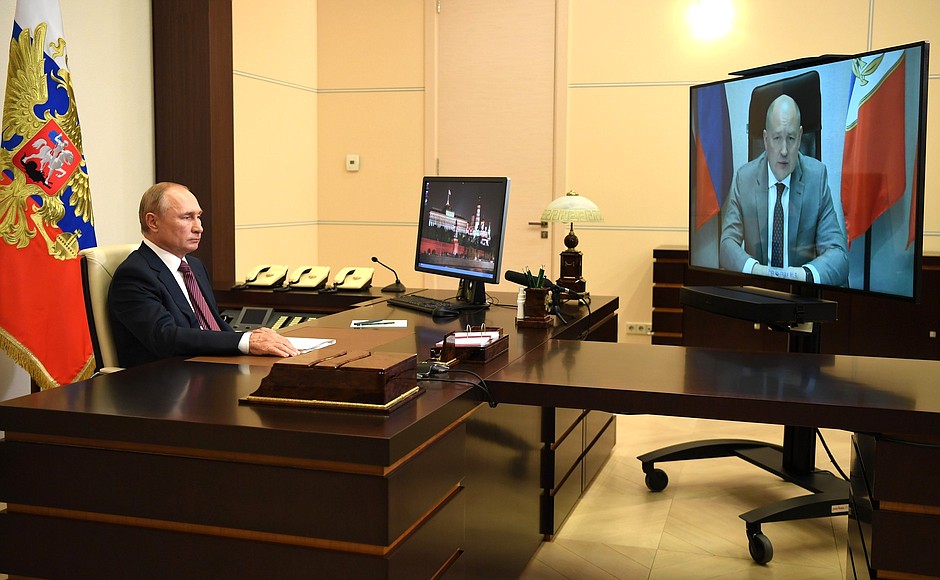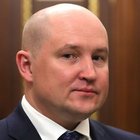Replying to the President’s question at the beginning of the conversation, Mr Razvozhayev reported a full-scale tourist season had started in the city since the lifting of restrictions linked with the spread of the coronavirus infection on July 1, and in July, the city received 120,000 tourists (20 percent more than last year). In addition, about half a million people visited Sevastopol for excursions.
The sanitary-epidemiological situation is stable and under control. As a result of the adopted measures, the city has one of the lowest COVID infection levels. The city has a reserve of 200 beds owing to the hospital built by the Defence Ministry and the construction of an additional unit in the infectious diseases hospital. All federal and regional support measures are being rendered. This applies, in part, to businesses that are getting back on their feet, especially in the sphere of the services industry.
The Acting Governor also reported on the implementation of the Federal Targeted Programme on the Socio-Economic Development of the Republic of Crimea and the City of Sevastopol until 2024. Sevastopol received an additional almost 30 billion rubles. Three new schools and three kindergartens were built in 2020. The construction of an emergency medical services hospital has begun and a contract was signed to build an oncological clinic. A new infectious diseases hospital will be built on the territory of a new modern medical cluster. the construction of sewage facilities will soon be launched. In the future, the city plans to implement a large-scale investment project to create a yacht marina.
The reconstruction of the historical part of the city was also discussed. 34 public spaces have already been created along with 164 new children’s playgrounds and sports grounds, and 69 courtyards have been fully landscaped.
The city water supply also came under discussion. It got worse this year due to a hot dry spell in Crimea that has been ongoing since spring. Mr Razvozhayev mentioned the project that dates back to Soviet times. Several attempts to complete it failed. This is about diverting some of the water from the Kokkozka River to the Chernorechenskoye Reservoir. This is a mountain river, and during the flooding that lasts from January to March, about 15 million tonnes of excess water run off to the sea each month. This water could instead be moved to the reservoir, which would resolve Sevastopol’s problem of a reliable water supply. According to the acting governor, 3.8 billion rubles are needed to build the necessary facilities. The Defence Minister promised to help with the construction. The Head of the Republic of Crimea, Sergei Aksyonov, is also supportive of the project as the river is located in Crimea.

There is another water supply related problem, which is water loss that was never addressed by Ukraine. In 2014, water loss was as high as 60 percent of the water supplied to Sevastopol. It has been significantly reduced over the past five years, but remains significant at up to 40 percent. To bring the losses to code (about 20 percent), the water supply pipeline must be overhauled, for which another 3.6 billion rubles are needed. These projects have been worked out.
The President noted that this issue is critical just like electricity supply and some other issues and promised to issue a corresponding executive order for the Government to act upon. He asked Mr Razvozhayev to work on the pace and timing of the joint effort with the federal authorities. It is imperative to reconcile the amount of funding and get to work.
Vladimir Putin also promised support in resolving an environmental problem in Sevastopol. Balaklava is an ideal spot for yacht tourism and tourism in general. So, modern treatment facilities and other matters of this kind are of paramount importance, the President said.
The President also said that the focus should go to investing in the region’s fixed assets in order to restore its industrial capacity, especially the environmentally friendly hi-tech industries that do not create problems for either Sevastopol residents or vacationers in Sevastopol and Crimea.
Vladimir Putin also suggested taking a closer look at issues such as budget execution and local incomes, noting that the situation in the region is gradually improving. The region’s GRP, industrial output and retail trade are growing and the resident population numbers are going up, which is indicative of the high quality of the comprehensive measures to address social issues.
In closing, the President wished Mr Razvozhayev every success in his work.

